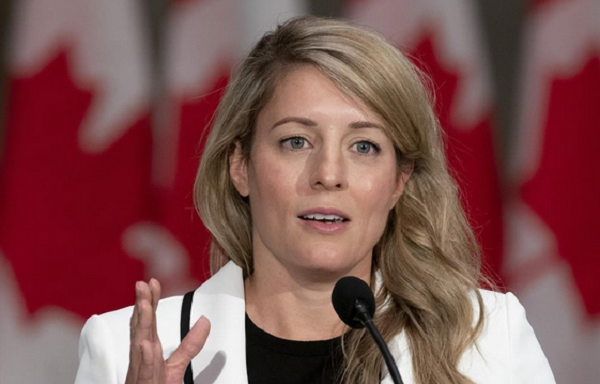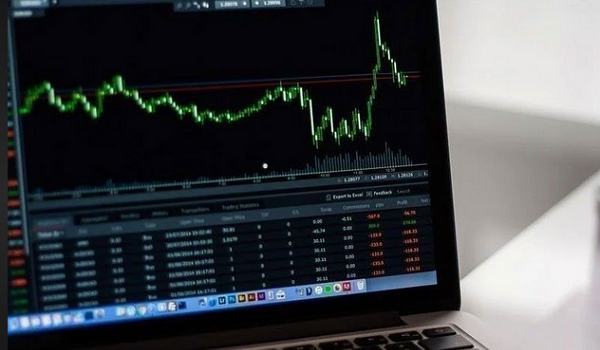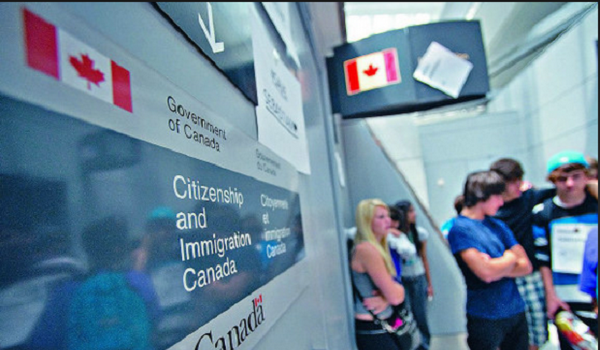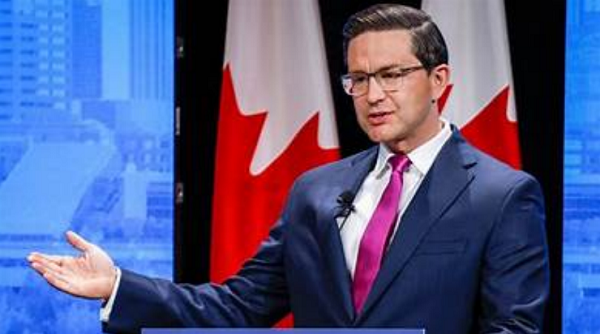Canada in accord with the need to ‘work for a ceasefire’ in the Israel-Hamas war: Joly
Canada agrees with France’s president on the need to “work for a ceasefire” in the Israel-Hamas war, said Foreign Affairs Minister Mélanie Joly Thursday.
It’s the first time a leading Canadian government official has embraced the term “ceasefire” as Israel’s ground and air assault on Gaza continued more than four weeks after the Oct. 7 Hamas incursion into Israel triggered the war.
While she did not explicitly call for a ceasefire now, Joly’s comments go further than Prime Minister Justin Trudeau who has turned aside growing demands from the NDP, the Bloc Quebecois, and humanitarian and civil society groups in Canada that his government demand a ceasefire, saying Israel has a right to defend itself against Hamas attacks. The U.S., too, has continued to stand by Israel.
Joly’s remarks, made in French, come on a day when the White House said Israel had agreed to allow two humanitarian corridors to south Gaza to let people move away from where the Israeli military operation is concentrated in the north.
U.S. President Joe Biden’s National Security Council spokesman John Kirby said Thursday Israel had also agreed to allow daily four-hour humanitarian pauses, with three hours’ notice, for people to move toward the Rafah border with Egypt, possibly to get out of Gaza, to allow hostages to leave “should a release be secured,” and to allow more food, fuel and water supplies to get in.
Speaking to reporters in Vancouver as she was returning from a G7 meeting in Japan, Joly hailed it as a “good start,” saying that at last the parties in the conflict “have reached an agreement.”
On Thursday, another 32 Canadian citizens, permanent residents and family members managed to depart Gaza via the Rafah border crossing, bringing the total to 107 who’ve left over three days, with no Canadians leaving Wednesday.
Joly was asked whether she agreed with French President Emmanuel Macron who told a humanitarian aid conference in Paris on Thursday that, “In the immediate term, we need to work on protecting civilians.
“To do that, we need a humanitarian pause very quickly and we must work towards a ceasefire,” Macron said.
Joly told Canadian reporters she holds the same position.
“You know, we are all in favour of, that one day there will be a ceasefire,” Joly said. “That’s what President Macron said. But what France has said, it’s that currently, we are at the stage of calling for a humanitarian pause, because speaking concretely, we must evacuate Canadians, we have to ensure hostages are freed and we have to make sure more humanitarian aid gets into Gaza.”
She said it would also allow a form of “détente and so allow, I hope, even more negotiations at a negotiating table where there are Israelis, Hamas and Qatar which is present … as moderator.”
But Canada has never called for a ceasefire, never set out what it considers the proper “conditions” that might lead to one, and has never suggested that it would view Hamas as an equal party at any negotiating table — a position the U.S. expressly rejected this week, arguing it would be a propaganda victory for Hamas and legitimize their terrorist tactics.
In Ottawa, Washington and at the United Nations, leading Canadian ministers, the prime minister and officials have clung to the call for humanitarian pauses.
On Thursday, Trudeau in Longueil, Que., said he was encouraged by the deal struck after pressure from Biden. And he underscored his concern that pauses “need to be significant. They need to last long enough to get people out to get supplies in, and we have to start using them to start thinking about what the medium-term and long-term is” in order to figure out how to get to a two-state solution for Palestinians and Israel.
Joly disagreed that her use of the word ceasefire represented a shift in Canada’s position, saying it is “still the same.”
“We always have to work for a ceasefire. That’s why we must ensure that the conditions which will lead to a ceasefire are met,” she said, adding that is “exactly why France, all the G7, Canada are calling for a humanitarian truce.”
Joly said that “while we work on this humanitarian truce, we must also be able to work on a two-state solution which is key to having a long-term approach which will eventually be supported by a ceasefire.”
For weeks, and in the face of the rising civilian casualty count, Canada and the U.S. have maintained the position that there can be no ceasefire that would freeze the conflict, and allow Hamas — which they’ve labelled a terrorist organization — to regroup and continue its attacks.
They say Israel has a right under international law to defend itself militarily after the Oct. 7 Hamas incursion and massacre. While Canada and the U.S. have stood by Israel, Trudeau and Biden are increasingly pressing Israel to show restraint and prioritize civilian lives as the Israeli army strikes military targets in dense civilian neighbourhoods of Gaza.
More than 10,000 Palestinians have been killed in the war, including more than 4,400 children, the Hamas-run Health Minister in Gaza said. More than 1,400 people in Israel have been killed, most of them in the Oct. 7 Hamas attack, and 239 hostages were taken from Israel into Gaza by the militant group.
On Thursday, Biden’s security advisor Kirby reiterated that, and said under the “law of war, rules like proportionality and precaution still apply. They still apply. And the risks of harm to civilians at sites that Hamas is using for military purpose absolutely have to be considered when planning an attack.”
In the Commons Thursday, NDP MP Matthew Green said it was “shameful” that other MPs refuse to support the NDP’s call for a ceasefire. “How many Palestinian deaths will be necessary for the prime minister to find the moral courage to call for a ceasefire?” he demanded.
Joly also told reporters she has named Julie Sunday, currently her assistant deputy minister for consular, security and emergency management, as Canada’s senior official for hostage affairs. But it was not immediately clear what Sunday’s role is.
At least two Canadians are missing and believed by their families to be among the nearly 240 hostages, however Ottawa has not officially confirmed that is the case, saying to do so would endanger them further.
This article was reported by The Star
















